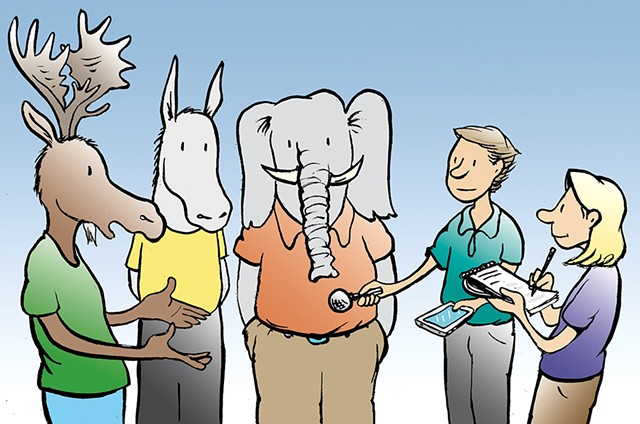
- Tim Newcomb
In May, Seven Days was selected to participate in the Clarify Your Elections Coverage program through the nonprofit Trusting News. The organization tasked participating news outlets with providing answers to frequently asked questions about political stories. The idea was to improve transparency and help readers understand how reporters and editors approach their work.
Why require publications to follow this format? According to Trusting News, this presentation "offers users a casual, accessible way to learn more about how your newsroom covers elections and politics. FAQs tend to be more conversational and can help newsrooms address ... how they plan to cover races, politicians and voting. They can also help make election coverage feel less overwhelming by quickly pointing people to the basic information they need to participate in elections."
We worked with the facilitators from Trusting News to craft the final product. It's a living document — we'll post it online and update it as needed.
How do you decide which races to cover?
With 180 seats in the Vermont legislature and various other offices on the line, Seven Days has to be selective. We prioritize contested races for statewide offices, such as for U.S. Senate, governor and secretary of state. We highlight local races judiciously. We've historically emphasized coverage in Burlington, the state's largest city, where we're based — we have a reporter assigned to city government — but we explore elections elsewhere, too, when they're illustrative of statewide issues or trends. For example, in the February 24, 2021, issue, we profiled several Black candidates running for local offices — in part because there are so few Black officeholders in Vermont and because they were running during the largest racial justice movement the U.S. had seen since the 1960s. We wrote about Barre Mayor Thom Lauzon's recent reelection fight in May because it touched on flood recovery efforts and also illustrated a classic Vermont culture clash between the brash mayor of this blue-collar community and a more progressive challenger.
Some races get more attention than others. Why?
The Seven Days news team considers various factors in determining which races to pursue most vigorously, such as the importance of the office. Vermont's governor makes more consequential decisions and wields more power than a state representative, for instance.
We also devote resources to candidates and races that appear to be competitive, as evidenced by the experience and background of the candidates, the size of the campaign organization — volunteer and paid campaign staff — and funding from political parties or individual donors. The paper covered the 2022 primary race for Vermont's lone seat in the U.S. House of Representatives extensively because there was no incumbent; multiple experienced candidates entered the Democratic primary; numerous organizations invited the candidates to debate; and donors spent large sums of money to try to influence the outcome.
We're also drawn to races that highlight different approaches to tackling civic issues such as public safety. We monitor social media and our local Front Porch Forums, attendance at public events, debate performances, letters to the editor, and other indicators that help us gauge whether candidates are striking a chord with voters.
Does party affiliation play a role in determining how Seven Days covers candidates?
We tend to focus more on candidates who are seeking or have secured endorsements from major parties — Democratic, Republican, Progressive — and those backed by campaign staffers, volunteers and donors. We are mindful, though, that Vermont voters have a history of backing independent candidates (e.g., U.S. Sen. Bernie Sanders), and we consider covering them, too, particularly if they possess unusual or noteworthy qualifications or can demonstrate significant public support for their campaign. We use the same criteria to determine whether we'll cover write-in candidates.
For example, in 2018, we covered Hal Colston's write-in Winooski City Council campaign. Colston, who then led an educational nonprofit in the city and formerly founded the nationally known Good News Garage, was a credible candidate with name recognition, and we wrote a short story about him when he entered the race. He ultimately prevailed. We also wrote about his second write-in campaign for a seat in the Vermont legislature. Colston won that race, as well.
Do you give all candidates an opportunity to express their views on the issues?
Even if our reporters don't report on independent candidates, we do include them in our primary and general election voters' guides. Our guides typically list all candidates on the ballot for the Vermont House and Senate, U.S. Congress, and statewide offices. All candidates for statewide offices who qualify to be on the general election ballot have the opportunity to submit biographical information, a photo and answers to a few questions that we publish in print and online. For the primary guide, we only publish information from candidates in contested races. We don't have the resources to print Q&As with all the candidates vying for Vermont's legislative seats, though each candidate who qualifies to be on the primary or general election ballots will be listed in the guides.
Does political advertising influence coverage?
No. Advertising dollars, political or otherwise, do not determine which races or candidates get coverage; neither do donations or grants made in support of our journalism.
Who writes and edits election stories?
Election coverage is handled by Seven Days staff news writers and overseen by an experienced team of editors led by news editor Matthew Roy. He came to Seven Days in 2014 after a 14-year stint at the Virginian-Pilot. Roy studied journalism at the University of Rhode Island and has more than three decades of experience as a reporter and editor.
Deputy news editor Sasha Goldstein arrived at Seven Days in 2016 from the New York Daily News. Goldstein has a BA in journalism from the University of Wisconsin. Both he and Roy are among the 16 employee-owners of Seven Days.
They're assisted by consulting editors Ken Ellingwood, who spent 25 years at the Los Angeles Times; and Candace Page, a longtime former Burlington Free Press writer and editor; as well as by Seven Days cofounder and editor-in-chief Paula Routly. Both Routly and Page are members of the New England Newspaper Hall of Fame. Their institutional memory informs our coverage.
News staff writers include Kevin McCallum and Derek Brouwer, who arrived at Seven Days on the same day — January 1, 2019. Both came from out west; Brouwer had worked at the Missoula Independent in Montana and McCallum at the Press Democrat in Santa Rosa, Calif., where he was part of the Pulitzer Prize-winning team that covered the wildfires there.
Courtney Lamdin is our Burlington reporter. A Barre native who studied journalism at Saint Michael's College, Lamdin previously rose through the ranks to become executive editor of three community newspapers. She's been covering politics in the Queen City since 2019.
Colin Flanders spent four years as a reporter at the Essex Reporter, Colchester Sun and Milton Independent before joining Seven Days in 2019. Like Lamdin, he's a graduate of the journalism program at Saint Michael's College.
Education reporter Alison Novak is a former elementary school teacher and managing editor of Kids VT who started covering K-12 education for Seven Days early in the pandemic.
Anne Wallace Allen has a master's degree in public policy from Georgetown University and has worked as a journalist for nearly 30 years at the Associated Press, Idaho Statesman, Idaho Business Review and VTDigger.org. She joined Seven Days in 2021.
Rachel Hellman is a corps member of Report for America, a national service program that places journalists in underserved newsrooms around the country and helps train them. Hellman has covered rural Vermont since 2022.
Other staff writers are sometimes called upon to pitch in on campaign coverage, especially on election nights.
How do you ensure fairness in election stories?
It's important to us that candidates from across the political spectrum have a chance to share their views with our reporters and feel that Seven Days represents them accurately. When we approach election stories, we try to ask the questions our readers are asking; often we hear these from readers directly. We work to stay focused on issues versus reporting which candidate might be leading in the polls or in fundraising. We allow candidates to respond to attacks by sources or other candidates. We ask follow-up questions if we feel a candidate has dodged a query. We scrutinize candidates' backgrounds and verify their credentials. We assess the experience they'd bring to the role they're seeking.
Do you cover election finances?
Yes. Seven Days reviews up-to-date campaign financial disclosures for each race we cover. It's important to know who's supporting each candidate — small donors, wealthier donors, special-interest political action committees or all of the above.
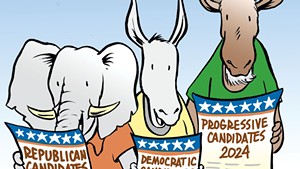
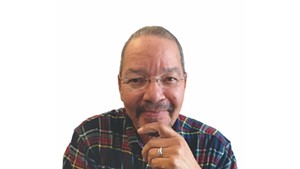
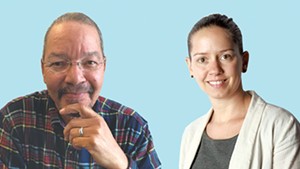





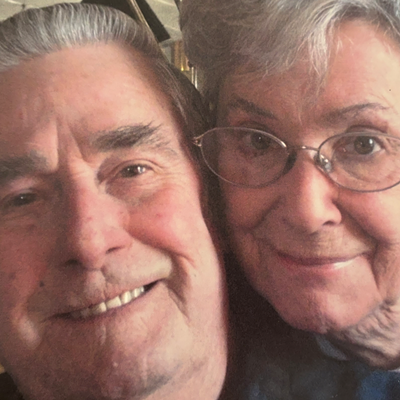
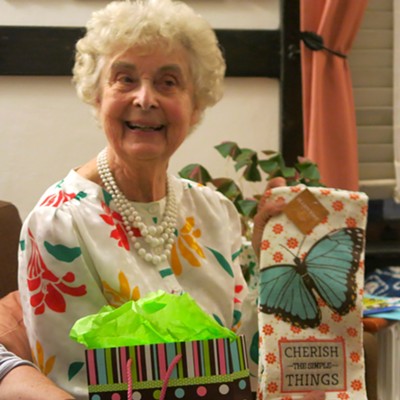
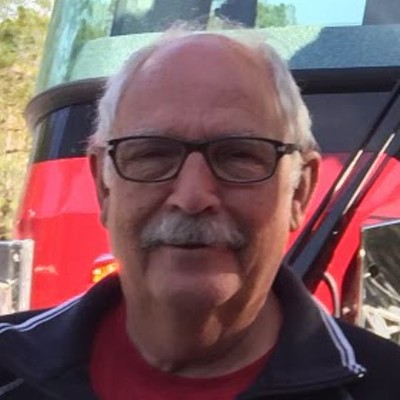
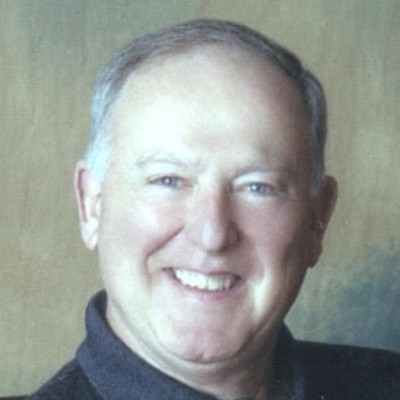
Comments
Comments are closed.
From 2014-2020, Seven Days allowed readers to comment on all stories posted on our website. While we've appreciated the suggestions and insights, right now Seven Days is prioritizing our core mission — producing high-quality, responsible local journalism — over moderating online debates between readers.
To criticize, correct or praise our reporting, please send us a letter to the editor or send us a tip. We’ll check it out and report the results.
Online comments may return when we have better tech tools for managing them. Thanks for reading.